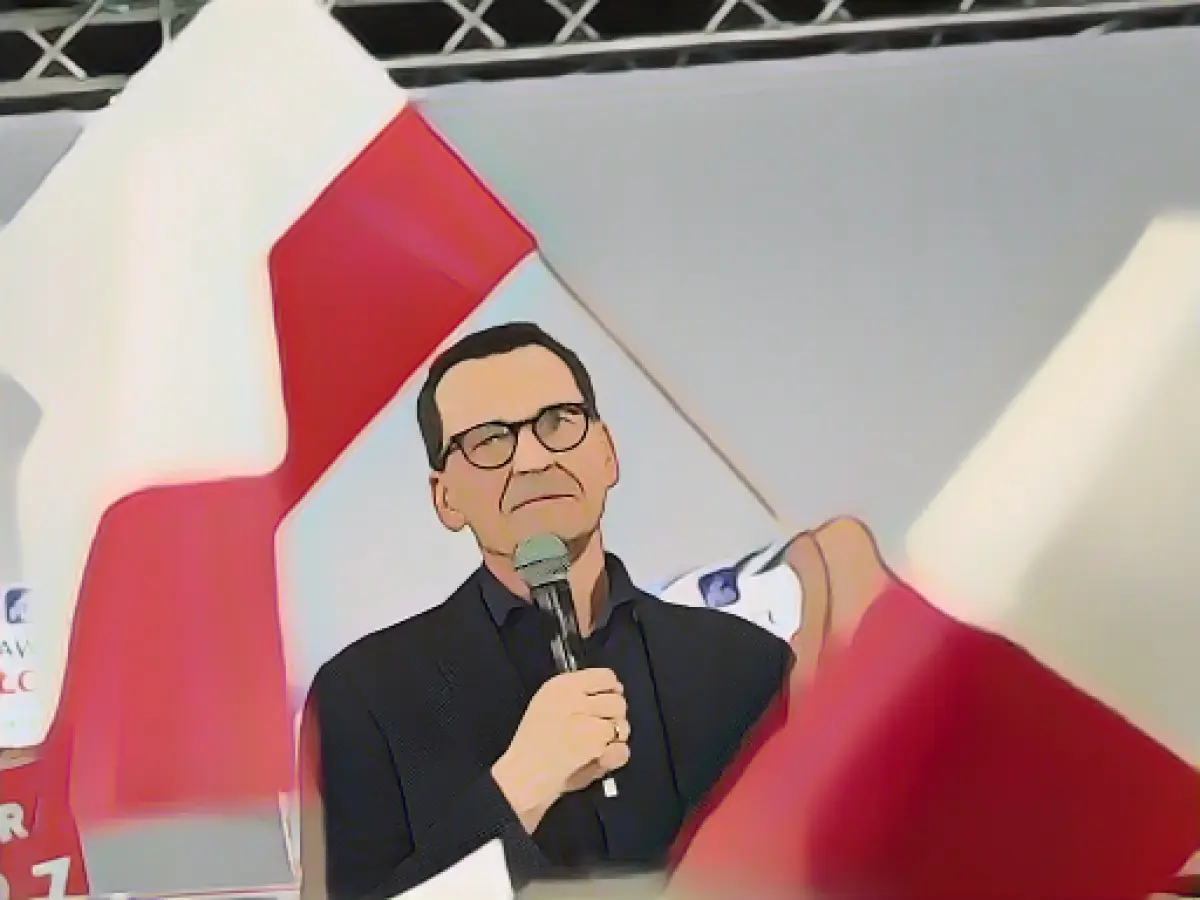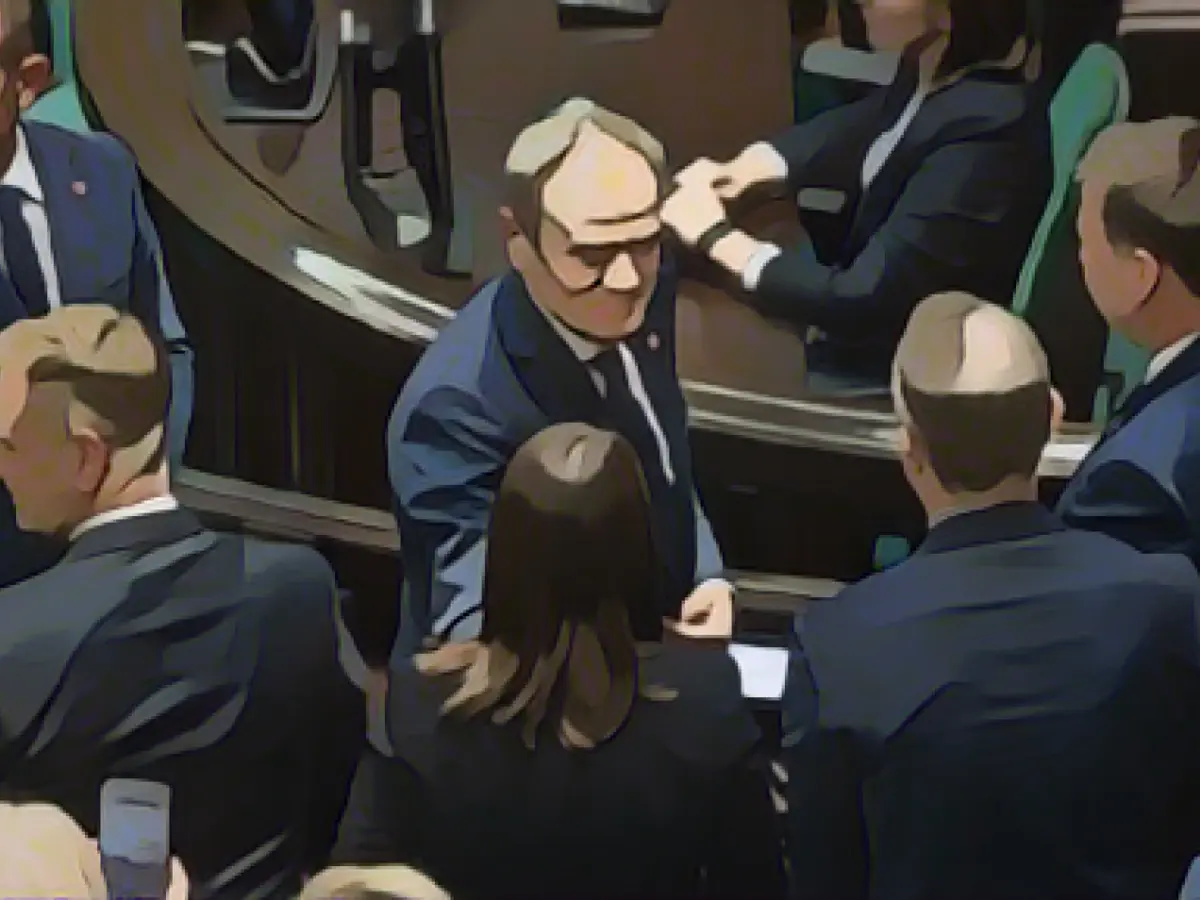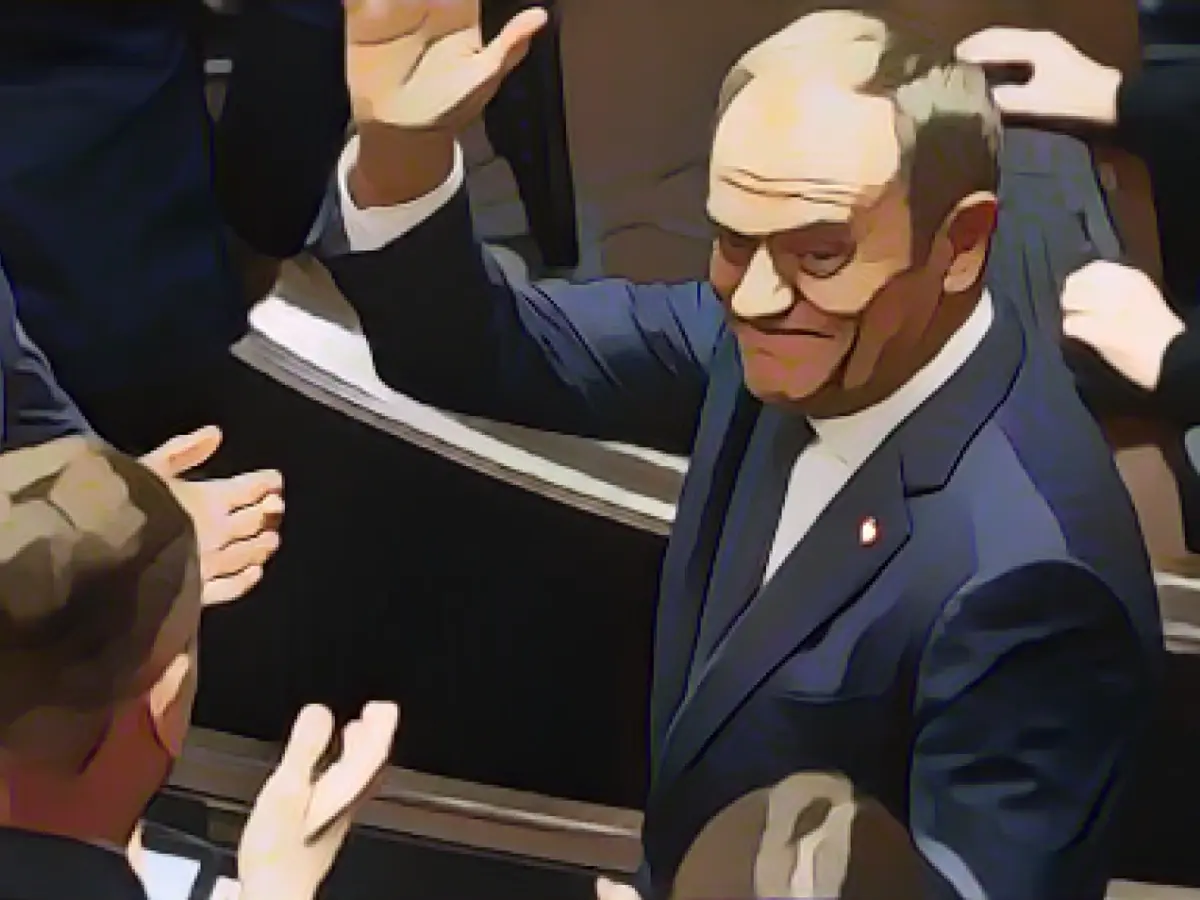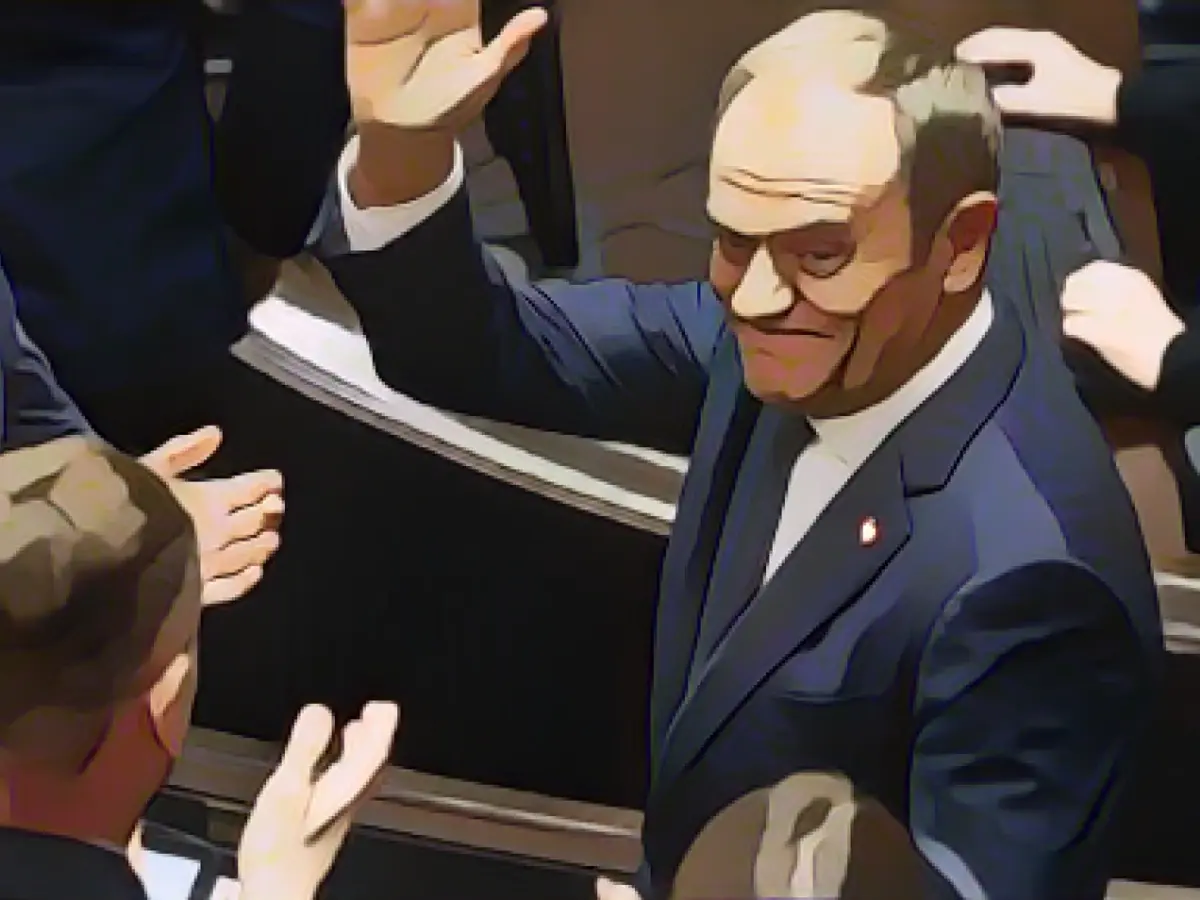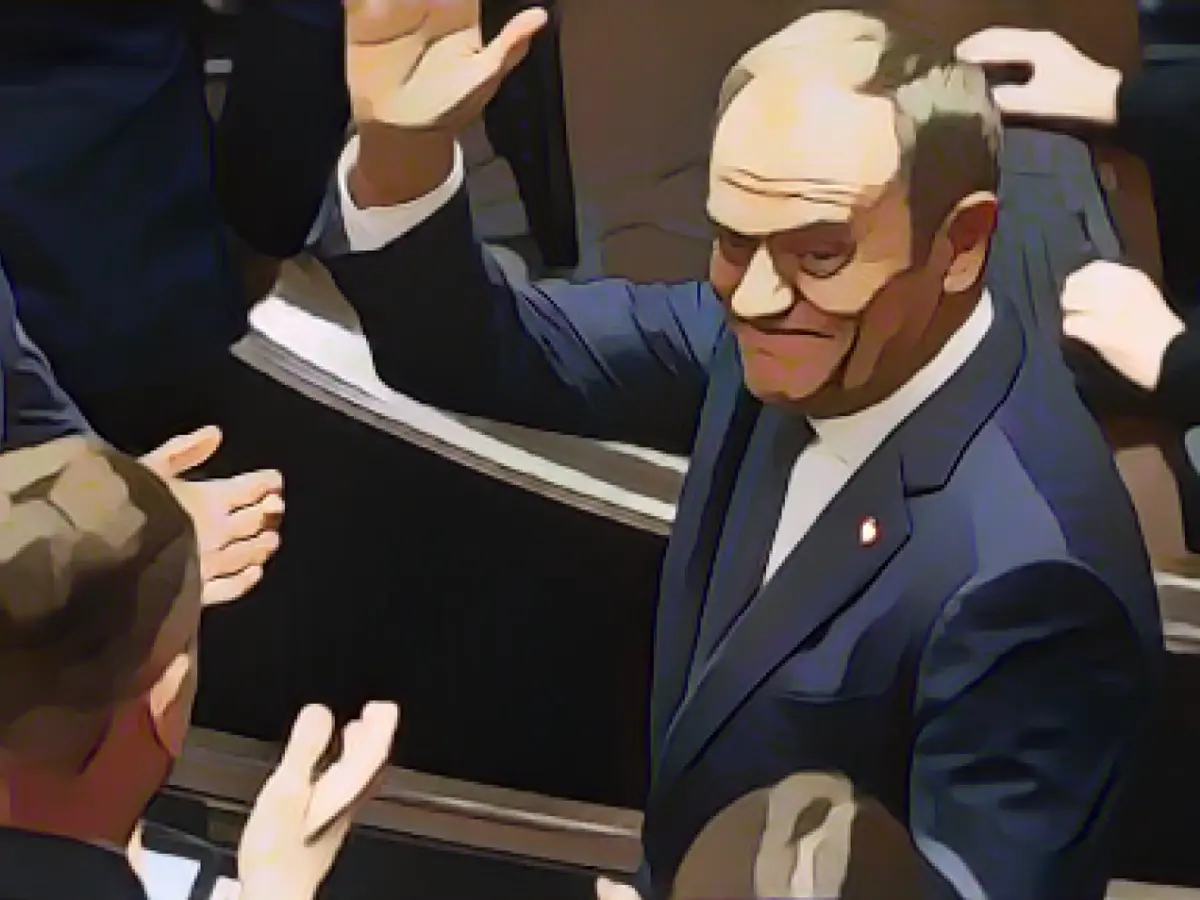Delaying the New Dawn in Poland's Politics
The triumphant grin on Polish President Andrzej Duda's face as he swears in Mateusz Morawiecki's PiS government, despite lacking a majority in the new parliament, was as theatrical as it was misleading. Behind the pomp and circumstance, it was evident that the far-right, national-conservative party had lost the parliamentary election on October 15. The winner? Donald Tusk and his three-party alliance of pro-European parties boasting a clear parliamentary majority.
Yet, Duda persisted in swearing in a government destined for failure, with Morawiecki at its helm and a cabinet filled with little-known politicos. Duda praised the cabinet's high representation of women and young people, but critics saw this as a cynical ploy to sacrifice these groups for a hastily doomed mission.
The Two-Week Government's Farce
Polish media dubbed the PiS government the "two-week government" in jest, expecting Morawiecki's tenure to last only 14 days and that he would face an embarrassing defeat in the parliamentary vote of confidence. Tusk and his coalition posed the real threat to the PiS's grip on power.
Post-Election Chaos
The relentless PiS and Donald Tusk exchanged power in a drawn-out power struggle that marred Poland's democratic processes. While Brussels and Berlin awaited the EU's democratic Poland to return to its pro-European course, the PiS clung to power in a desperate effort to salvage its deteriorating image at home.
Preserving a Tattered Image
The PiS used this stalemate to position its protégés within the government, sabotage Tusk's coalition before his ascension, and deflect blame towards Tusk and his supporters for their reluctance to accommodate the PiS in a coalition. This precarious situation was all about preserving the PiS's image in front of its voters by appearing to quarrel with the EU and not give up the fight, as political scientist Antoni Dudek explained.
Prolonging the Agony
President Duda, a fellow PiS member, played a critical role in this ongoing drama, refusing to convene the parliament until the very last deadline, in a brazen attempt to salvage the PiS's sinking political fortunes.
The PiS's Unlikely Ally
Duda's support for the PiS was crucial, not only in commissioning Morawiecki's cabinet despite the opposition's majority but in respecting the limitations of the Polish Constitution to its very end.
The Opposition's Resistance
In the face of the PiS's unscrupulous maneuvering, other political parties in Poland shut the door on any possibility of a coalition with the ruling party. Szymon Holownia, the leader of the Third Way and newly elected parliament speaker, spoke on behalf of the opposition, dispelling any illusions that the PiS might decipher non-existent negotiations into a legitimate government.
Conclusion
Despite the clear-cut victory in the parliamentary election, Duda remained reluctant to hand over power to the winning coalition. This decision to keep the unpopular and unelected PiS government in office for an indefinite period served no purpose and only incited further confusion and disarray in the already tense political climate. The PiS's blatant disregard for democratic processes and its prioritization of preserving its image over the will of the people proved to be a demoralizing spectacle for Poland's political landscape.
